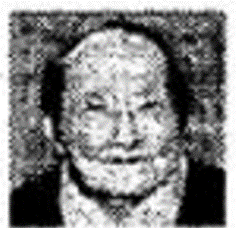BIOGRAPHY
Ai Kawasaki was born in Kanazawa City, Ishikawa Prefecture, Japan, on 10 November 1880. She spent part of her early life in Matsue City, Shimane Prefecture. Raised in an education-focused household, her father was a teacher. Around 1900, she graduated from Hiroshima Prefectural Normal School, which later became Hiroshima University.
At 22, she married and went on to have seven children. However, at the age of 55, she faced a major challenge when her husband passed away. Despite this loss, she remained fiercely independent and chose not to rely on her family for personal care. Though she was strict with her children, she allowed them to pursue their own interests. Kawasaki was described as a quiet person who didn’t engage much in small talk, but she found joy in sewing and crafting. She even sewed clothes for her daughters. The secret to her long life, she believed, was sleeping well and maintaining her independence.
At 92, Kawasaki voluntarily moved into a nursing home, where she led an active life. She maintained her independence and was able to walk on her own until the age of 102, when a hernia left her bedridden. Despite this, she remained healthy, free of chronic illnesses. Even at 110, she enjoyed eating porridge once or twice a day and had a particular love for ice cream. Kawasaki had no strong food preferences. She avoided meals like rice bowls where side dishes were placed directly on top of the rice. From a young age, she practiced moderation, eating only 80% of her meals and avoiding spicy foods.
Kawasaki loved singing, and even after losing her hearing, she looked forward to family visits. On good days, she enjoyed wheelchair outings with the help of a staff member. In her later years, she gained recognition for her longevity.
Ai Kawasaki passed away on 1 October 1991, at the age of 110 years, 325 days, due to heart failure.
RECOGNITION
By September 1988, at 107 years old, she was ranked the 18th oldest person in Japan. By September 1989, she was the 12th oldest, and in April 1990, following the death of Tatsu Sato from Nerima Ward, she became the oldest person in Tokyo.
In November 1990, she turned 110, becoming the first person in Tokyo to reach that age.
At the time of her death, she was the fifth-oldest living person in Japan, following Waka Shirahama, Tane Ikai, Take Abe, and Hide Ōhira.
Her age was verified by Japan’s Ministry of Health, Labour, and Welfare (MHLW), as well as Ryohei Asano, and validated by LongeviQuest on 18 October 2024.
ATTRIBUTION
* “都内の長寿番付 297人が100歳越 一世紀人生の顔優しく” – Yomiuri Shimbun, 12 September 1990
* “輝く一世紀の笑顔 100歳以上は都内に298人” – Asahi Shimbun, 15 September 1990
* “都内の最高齢者、110歳の川崎愛さん死去” – Mainichi Shimbun, 3 October 1991

